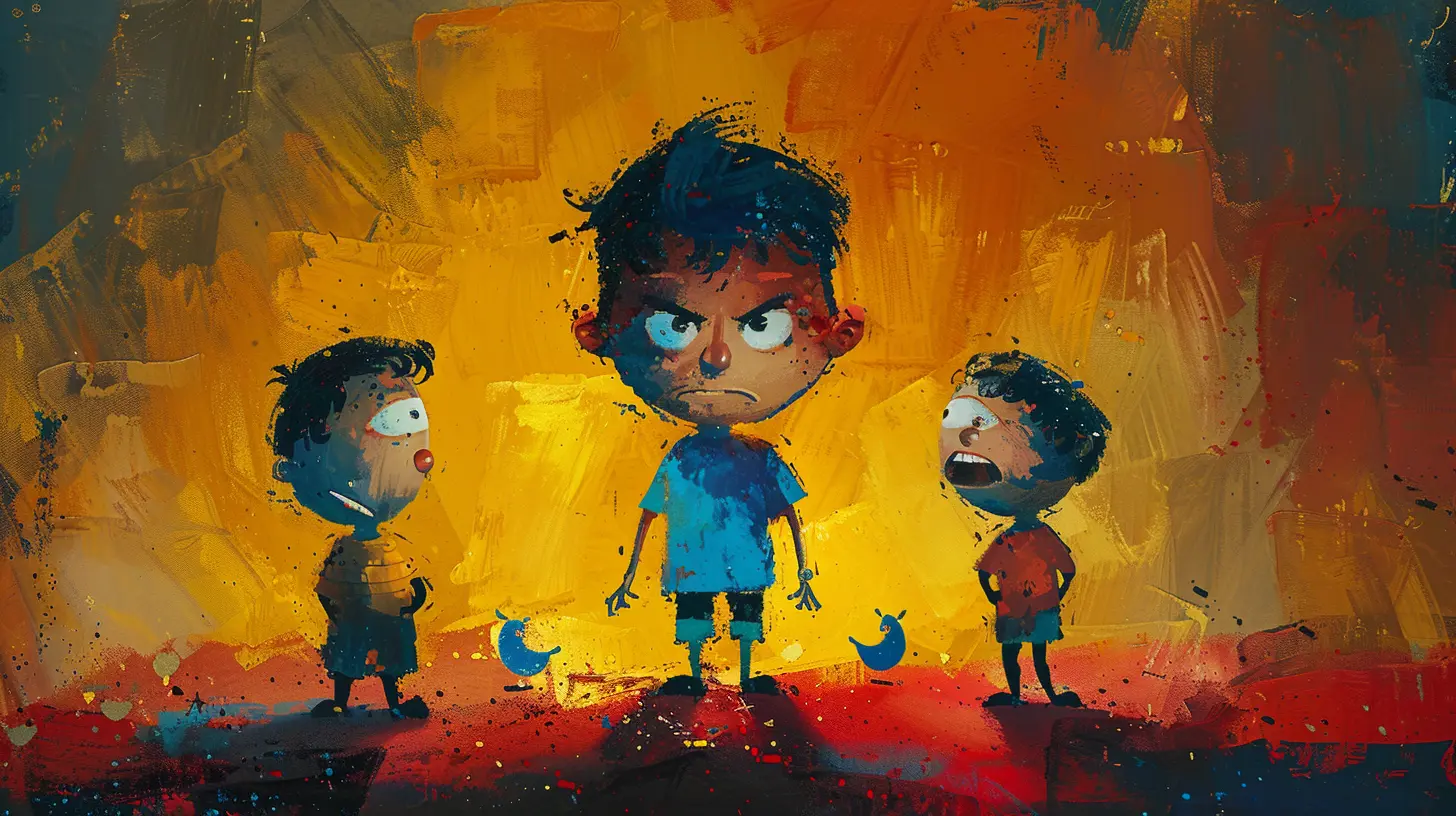Breaking the Cycle of Nagging: Positive Alternatives
16 October 2025
The Echo of Nagging: A Familiar Tune
Nagging—oh, how it weaves itself into the daily rhythm of parenting.
"Brush your teeth."
"Pick up your toys."
"Did you finish your homework?"
It's a song we sing on repeat, our voices rising like a chorus of frustration. But here's the thing: nagging rarely works the way we want it to. Instead of cooperation, we get eye rolls, sighs, and that dreaded selective hearing.
So, how do we break the cycle? How do we replace nagging with something more effective—more harmonious?
The answer lies in shifting the tune. Let’s embrace positive alternatives and create a household melody filled with connection, encouragement, and respect. 
Why Nagging Doesn’t Work
Nagging is like a broken record—it plays the same line over and over, but no one really listens.Kids tune it out because it becomes noise, not guidance. Instead of motivating, it stirs up resistance. Imagine someone constantly badgering you about something you already know you should do. Annoying, right? That’s exactly how kids feel.
Nagging also drains you. The endless cycle of repeating the same command wears down even the most patient parent. It creates a negative atmosphere, turning everyday moments into power struggles rather than opportunities for learning and growth.
But don’t worry—there’s a better way. 
1. Shift from Commands to Choices
Kids crave control—just like adults. No one likes being told what to do all the time. By offering choices instead of commands, you hand over some responsibility while still getting the outcome you need.❌ Nagging: "Put your shoes on now!"
✅ Choice: "Do you want to wear the blue sneakers or your sandals today?"
When children feel they have a say, they are much more likely to cooperate. 
2. Use Playfulness Instead of Pressure
A little humor and creativity go a long way. Make mundane tasks fun, and suddenly, cooperation isn't such a battle.- Turn brushing teeth into a race against an invisible "cavity monster."
- Challenge your child to a "clean-up blitz" to see how many toys they can put away before the timer runs out.
- Speak in silly voices or pretend the socks are talking when it's time to get dressed.
Playfulness transforms nagging into an interaction they actually enjoy. 
3. Replace Repetition with Connection
Sometimes nagging isn't about the task—it’s about the relationship. Before reminding again, pause and connect.- Get down to their level.
- Place a gentle hand on their shoulder.
- Make eye contact and speak calmly.
Instead of saying, "For the tenth time, clean your room!" try:
"Hey, buddy, I know cleaning up isn’t your favorite thing, but let’s do it together for five minutes and see how much we can finish."
A little connection softens resistance and turns tasks into moments of teamwork.
4. Use When-Then Statements
When-then statements are magical because they link responsibilities to desired activities—without threats or nagging.❌ Nagging: "Do your homework now!"
✅ When-Then: "When your homework is done, then you can watch your favorite show."
This subtly shifts accountability to them. It’s not about forcing them to do something—it’s about showing them how responsibility leads to rewards.
5. Let Natural Consequences Teach the Lesson
Sometimes, it's best to step back and let life do the talking. If your child refuses to wear a jacket, let them experience the chill. If they forget their lunch, they’ll feel the hunger.Natural consequences are powerful teachers. Instead of nagging, you can simply remind them once and let reality handle the rest.
It’s tough to watch, but experience is often the best guide.
6. Acknowledge Effort, Not Just Results
Kids thrive on recognition, but not just for success—effort needs praise too.Instead of pointing out what’s not done, highlight progress:
"I see you started putting your toys away. That’s awesome! Let’s finish up together."
Encouragement builds motivation, while criticism often shuts it down.
7. Model the Behavior You Want to See
Kids imitate what they see, not what they’re told. If we model patience, cooperation, and responsibility, they’ll follow suit.- Want them to speak kindly? Speak kindly to them.
- Want them to clean up after themselves? Let them see you tidying up with a positive attitude.
Kids learn by example, so let’s lead in a way worth following.
8. Create Routine Charts and Visual Reminders
Why rely on constant verbal reminders when visual cues do the job better?- Use a morning checklist with pictures for younger kids.
- Post a chore chart where everyone can see it.
- Set up a timer for task transitions.
Reducing verbal reminders means reducing nagging—a win for everyone.
9. Pick Your Battles Wisely
Not every issue needs a full-scale intervention. Ask yourself:"Is this worth the fight?"
If mismatched socks or an unmade bed won’t matter in the long run, maybe it's best to let it go. Save your energy for the battles that truly matter.
When kids feel constant pressure, they resist more. But when they sense trust and autonomy, they naturally become more responsible.
10. Practice Patience & Self-Compassion
Breaking the cycle of nagging isn't about perfection—it's about progress.You’ll still find yourself slipping into old habits, and that’s okay. The key is recognizing when it happens and gently steering back to more positive alternatives.
Give yourself grace. Parenting is a journey, not a destination.
A New Melody for Parenting
Imagine a home where nagging fades into the background, replaced by cooperation, connection, and mutual respect.Sounds peaceful, doesn’t it?
By shifting from commands to choices, using playfulness, embracing natural consequences, and modeling the behavior we wish to see, we can change the tune of our parenting. Breaking the cycle of nagging isn’t just for them—it’s for us, too.
Let’s rewrite the parenting song—one that’s filled with laughter, guidance, and love.
all images in this post were generated using AI tools
Category:
Positive DisciplineAuthor:

Karen Hurst
Discussion
rate this article
1 comments
Colette Jacobs
Thank you for this insightful article! Your practical strategies for breaking the cycle of nagging are incredibly helpful. I appreciate the positive alternatives you've shared and look forward to implementing them in my parenting approach. Keep up the great work!
October 21, 2025 at 3:43 AM

Karen Hurst
Thank you for your kind words! I'm glad you found the strategies helpful. Wishing you the best in your parenting journey!


